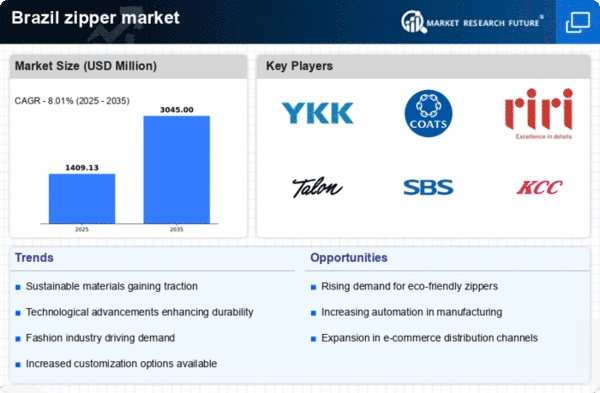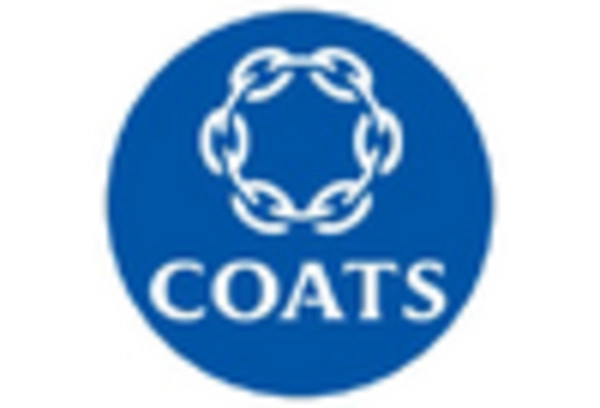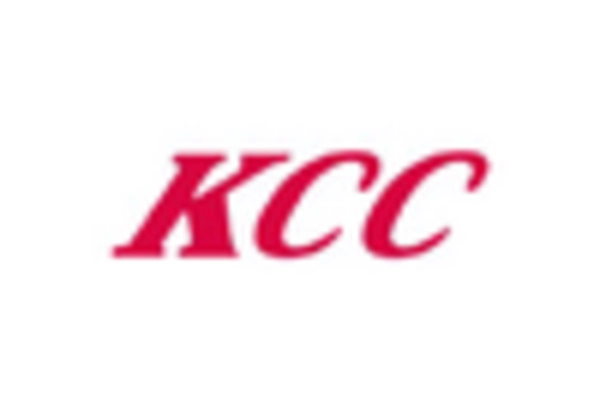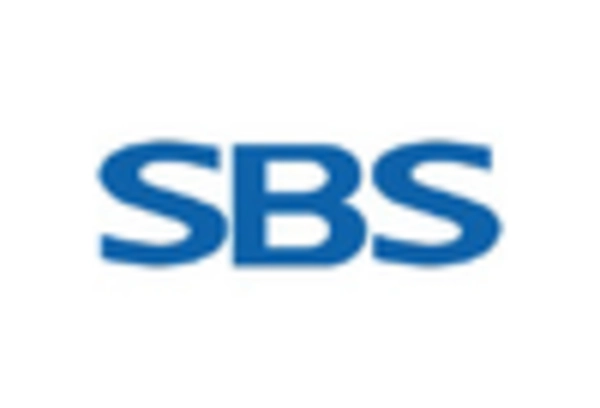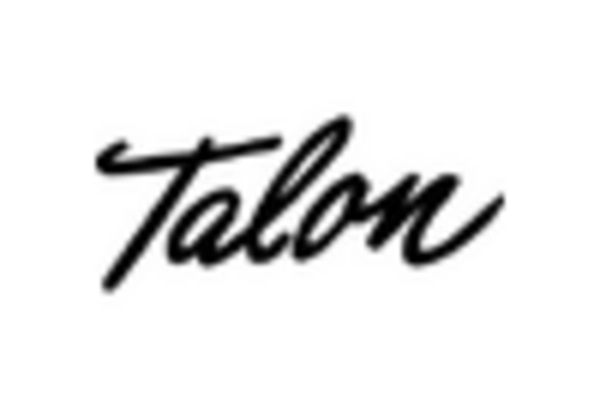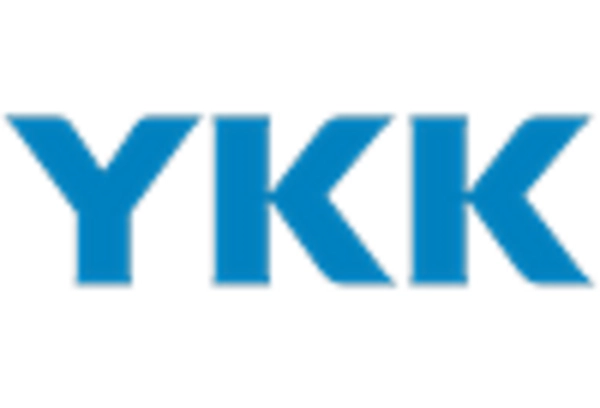Growth of the E-commerce Sector
The expansion of the e-commerce sector in Brazil significantly influences the zipper market, as online retail platforms provide a convenient avenue for consumers to access a diverse range of zipper products. With the increasing penetration of the internet and mobile devices, more consumers are turning to online shopping for their fashion and textile needs. This shift is evidenced by a reported growth rate of 20% in online sales of zippers over the past year. E-commerce platforms enable manufacturers to reach a broader audience, thereby enhancing their market presence. Additionally, the ability to showcase various zipper styles and functionalities online allows consumers to make informed purchasing decisions. As the e-commerce landscape continues to evolve, it is expected to further propel the zipper market in Brazil, creating new opportunities for both established and emerging players.
Expansion of the Textile Industry
The expansion of the textile industry in Brazil serves as a crucial driver for the zipper market, as the demand for zippers is intrinsically linked to the growth of apparel and home textiles. With the textile sector projected to grow at a rate of 5% annually, the zipper market is poised to benefit from this upward trend. As more textile manufacturers ramp up production to meet consumer demand, the need for high-quality zippers becomes increasingly critical. This relationship suggests that the health of the zipper market is closely tied to the overall performance of the textile industry. Additionally, the rise of local brands and the push for domestic production may further stimulate demand for locally sourced zippers, thereby enhancing the market landscape.
Increased Focus on Sustainability
The zipper market in Brazil is witnessing a heightened focus on sustainability, as both consumers and manufacturers prioritize eco-friendly practices. This trend is driven by a growing awareness of environmental issues and the demand for sustainable products. Manufacturers are increasingly adopting sustainable materials and processes, which is reflected in the market data indicating that approximately 25% of zippers produced in Brazil now utilize recycled materials. This shift not only caters to the environmentally conscious consumer but also positions companies favorably in a competitive market. As sustainability becomes a core value for brands, the zipper market is likely to evolve, with an emphasis on reducing waste and promoting responsible sourcing. This driver may lead to the emergence of new business models centered around sustainability, further influencing market dynamics.
Rising Demand for Fashionable Zippers
The zipper market in Brazil experiences a notable increase in demand for fashionable zippers, driven by the growing apparel and accessories sector. As consumers become more style-conscious, manufacturers are compelled to innovate and offer zippers that not only serve functional purposes but also enhance the aesthetic appeal of products. This trend is reflected in the market data, which indicates that the fashion segment accounts for approximately 35% of the total zipper market revenue in Brazil. The emphasis on design and customization in clothing has led to a surge in the production of decorative zippers, which are increasingly sought after by both consumers and designers. Consequently, this driver is likely to shape the future landscape of the zipper market, as brands strive to meet the evolving preferences of their clientele.
Technological Innovations in Manufacturing
Technological advancements in manufacturing processes are reshaping the zipper market in Brazil, leading to enhanced production efficiency and product quality. Innovations such as automated machinery and advanced materials are enabling manufacturers to produce zippers that are not only more durable but also more versatile. For instance, the introduction of eco-friendly materials in zipper production aligns with the growing consumer preference for sustainable products. This shift is likely to attract environmentally conscious consumers, potentially increasing market share. Furthermore, the integration of smart technology in zippers, such as RFID tags for inventory management, is gaining traction. This trend suggests that the zipper market in Brazil is on the cusp of a technological revolution, which may redefine consumer expectations and industry standards.


